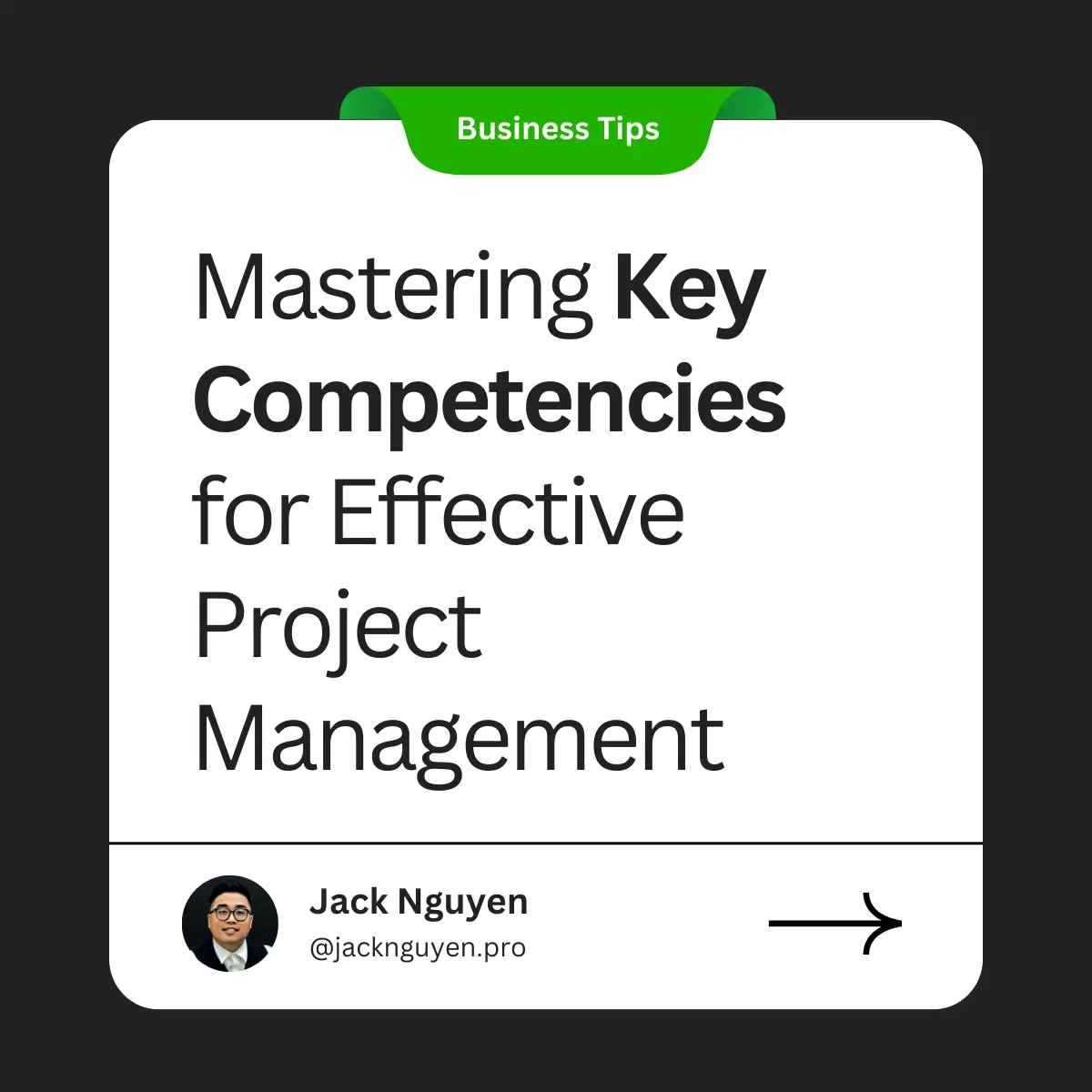

Table of Contents
In this comprehensive guide, we will explore the key competencies that project managers must master to achieve success in their roles. Specifically, we will delve into the importance of adaptability and managing ambiguity as essential skills for effective project management. By embracing these competencies, project managers can navigate uncertainty, drive successful outcomes, and propel their careers forward. Join us as we uncover practical strategies to develop these skills and provide you with the tools you need to excel in project management.
Key Competencies for Project Managers:
We’ve discussed the four crucial competencies that project managers should possess: enabling decision-making, effective communication and escalation, strong organizational skills, and adaptability. These competencies form the foundation of successful project management. Let’s further explore each of these competencies and their significance in driving project success.
1. Enabling Decision-Making:
One of the primary responsibilities of a PM is to empower team members and foster a collaborative decision-making process. By clearly articulating the goals of specific deliverables and seeking input from the team, PM can tap into the collective expertise of their team members. Embracing diverse perspectives often leads to more innovative and efficient approaches to tasks. Moreover, empowering team members to make decisions instills a sense of responsibility, accountability, and cohesion within the team.
2. Effective Communication and Escalation:
A key component of successful project management is effective communication.. Project managers must skillfully convey project goals, expectations, and feedback to ensure everyone is aligned and working towards a common objective. Additionally, knowing when and how to escalate issues to higher management is critical for timely resolution and progress. When escalating problems, project managers should not only present the issue but also propose potential solutions. This proactive approach demonstrates leadership and enhances the likelihood of effective problem-solving.
3. Strong Organizational Skills:
It’s critical for project managers to keep their organizational skills sharp.. Your ability to stay organized and keep track of project elements directly influences the efficiency and productivity of your team. Leveraging a range of organizational tools and techniques can streamline processes, facilitate collaboration, and ensure project milestones are met. From planning and scheduling software to collaboration tools and comprehensive documentation, exploring various tools and methodologies helps project managers identify the most effective organizational approach for their teams.
4. Adaptability:
In today’s rapidly changing business landscape, adaptability is a critical skill for project managers. Projects often encounter unforeseen changes and challenges, making flexibility essential for success. Embracing flexible planning strategies allows project managers to navigate uncertainties effectively. Here are some practical ways to cultivate adaptability within your project management approach:
Assess External Constraints: Incorporate external factors such as national holidays, team member availability, and potential disruptions into your project planning. Allocating additional time to account for these events minimizes their impact on project timelines.
Plan for Risks and Challenges: Anticipate potential risks by identifying them in advance. Consider scenarios such as team members falling ill or leaving the project, and develop contingency plans to mitigate these risks. Analyzing historical project data can provide valuable insights into potential challenges and inform your risk management strategies.
Calculate “Float” in Your Schedule: “Float” refers to the buffer time available before a task impacts the project timeline. By identifying and accounting for float, project managers can effectively manage resources, stay on schedule, and prevent delays.
5. Handling Ambiguity:
Ambiguity often poses a significant challenge in project management. Ambiguous goals, requirements, or changes can lead to confusion and hinder progress. However, project managers can navigate ambiguity and lead their teams with confidence. Here are practical
approaches to help your team navigate ambiguity while maintaining project momentum:
Keep Calm and Lead: In times of ambiguity, project managers must exude calmness and confidence. By projecting a composed demeanor, you inspire your team to stay focused and motivated, even in uncertain situations.
Show Empathy: Understanding your team’s thoughts and emotions during ambiguous times is crucial. Take the time to listen and empathize with their concerns and challenges. Let them know that you are there to support and guide them through the ambiguity.
Communicate Clear Knowns: Clearly define and communicate aspects of the project that are confirmed and will not change. This clarity provides a sense of stability and direction amidst the unknown or evolving elements of the project.
Decisiveness and Consistency: Avoid second-guessing your decisions in front of your team, as it can intensify uncertainty. Instead, demonstrate decisiveness while explaining the rationale behind your choices. If course corrections are necessary, communicate the reasons behind them clearly to maintain transparency and trust.
Trust in Team Expertise: Leverage the collective expertise of your team members to increase clarity. Encourage open discussions where team members share their knowledge and insights related to project components. This collaborative approach helps identify what is known, what is yet to be discovered, and generates strategies to acquire missing information.
Key takeaway
By mastering these key competencies, including enabling decision-making, effective communication and escalation, strong organizational skills, and adaptability, project managers can excel in their roles and drive successful project outcomes. Embracing ambiguity as an opportunity for growth and innovation, rather than a roadblock, enables project managers to navigate uncertainties with confidence. Remember, in the dynamic landscape of project management, continuous improvement and honing these competencies will position you as a sought-after project manager and a respected leader.
Topics
Don’t forget to share this post!
Jack Nguyen
The Tech-Savvy Solopreneur
Leave a Replay
Search
About Me
Jack Nguyen is a highly experienced business coach with a proven track record of helping entrepreneurs and small business owners achieve their goals.
Recent Posts
Follow Us
Weekly Tutorial
Play Video
Copyright © 2023. All rights reserved.



